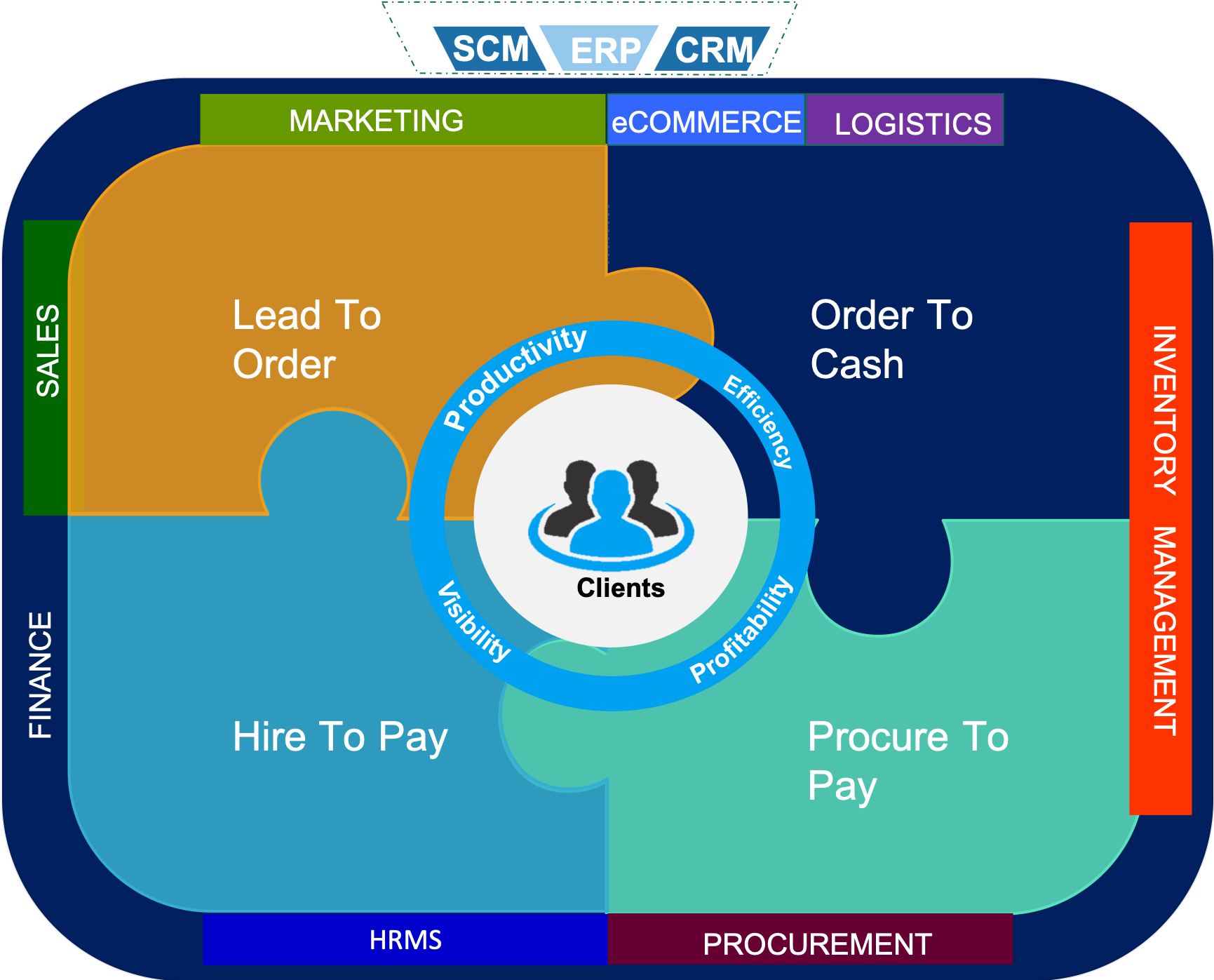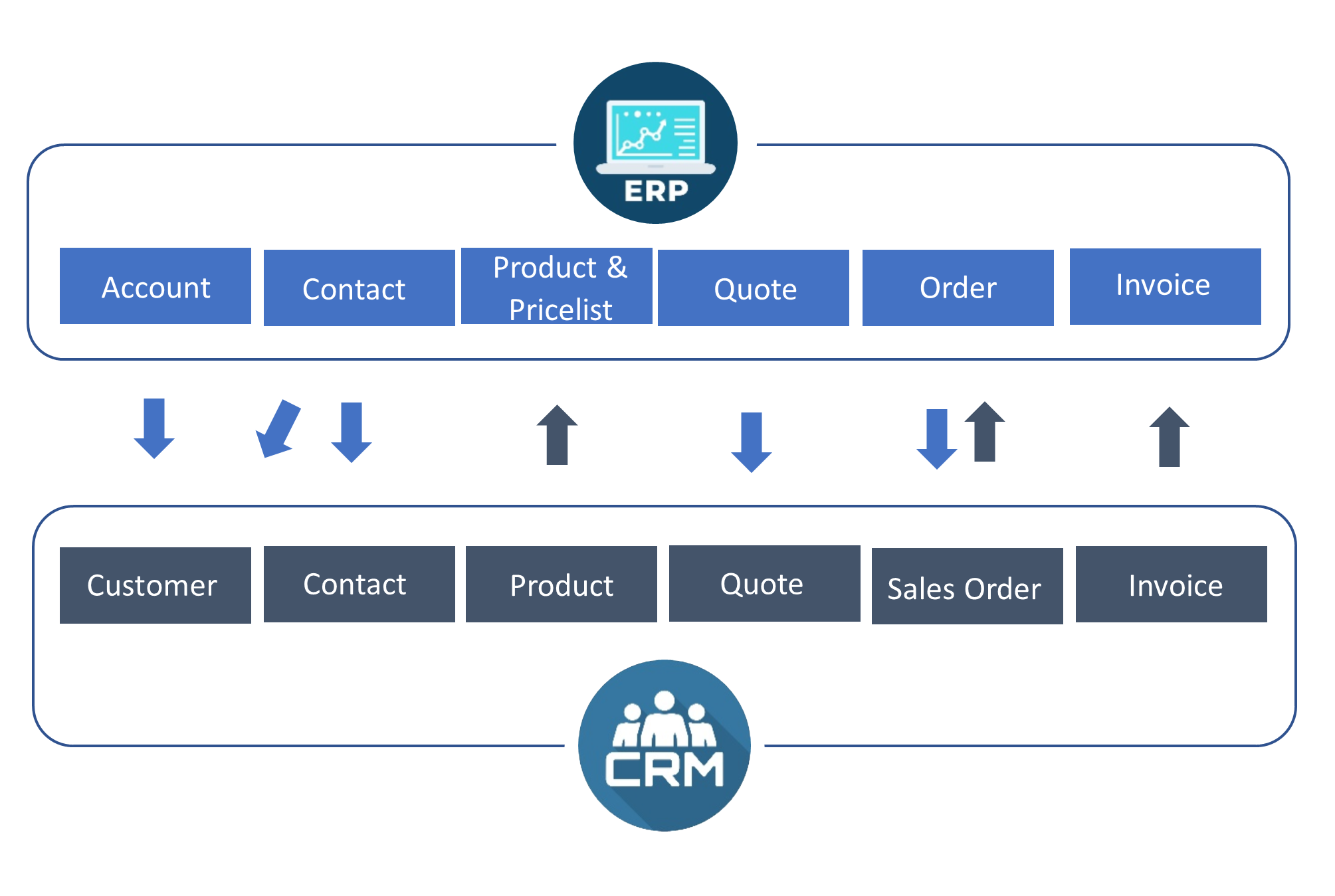CRM and ERP Integration Overview
Companies across industries rely on Enterprise Resource Planning (ERP) and Customer Relationship Management (CRM) software to streamline business operations. However, as many businesses are starting to discover, CRM and ERP software provide the greatest benefits when they work in tandem. In this blog, we try to capture advantages of CRM and ERP integration and how could you approach that.
The global Enterprise Resource Planning (ERP) software market is expected to earn $78 billion in revenue by 2026 and Customer Relationship Management (CRM) market is expected to reach USD 81.9 billion by 2025. ERP and Customer Relationship Management (CRM) are still important levers for businesses, with 53% naming the two as priority investments.
With an abundance of consumer data generated daily, businesses are witnessing a more complex business environment than ever. If customer information is not handled properly, it will become the biggest pain point for efficiency, forecasting and decision making.
ERP system is engineered to handle business’s back-end processes including stores, customer purchasing history, financial data, shipping and billing information, company accounting information, inventory data and more. CRM systems collects information about customers and prospects, their contact information and interaction history with the company. CRM is essential for sales pipeline management, tracking, generating leads and evaluating the success of marketing campaigns.
Although having separate systems might appear more manageable, integrating both systems will certainly streamline business processes, boost productivity and provide real-time view of the business across operations.
At a high level, integrating CRM and ERP will eliminate “swivel-chair” data entry, resulting in the automation of business processes, increase in data accuracy, and greater insights into customer base.

List of top CRM-ERP Systems
ERP Systems
- Microsoft Dynamics GP/AX/NAV
- SAP ERP
- Netsuite ERP
- Oracle ERP Cloud
- Workday ERP
- Sage ERP
CRM System
- Salesforce CRM
- SAP CRM
- Microsoft Dynamic 365
- Oracle CRM
- Netsuite CRM
- Monday.com
With CRM and ERP integration, following business objects are commonly being mapped in the integration layer
- Account and Contact Integration – This is initial need for CRM and ERP Integration to optimize the CRM ERP process. Both ERP and CRM systems include contact and account information, with ERP being more focused on billing and shipping addresses while CRM focuses on prospects and sales.
- Product Integration – The CRM application should be able to provide access to the products that are contained in the ERP system to achieve full process integration.
- Order and Quote Management – This is required component to turn proposal generation into concrete orders.
- Product/Order/Invoice Repository – One of the main functions of the ERP/CRM integration is providing your sales representatives with visibility into order statuses, as well as to make and track order changes.

Benefits of CRM and ERP Integration
- Faster access to crucial information.
- Centralization of Accounts and Contacts.
- Improved order, inventory and quote management.
- Easier Quoting and Ordering.
- Stronger Visibility and Forecasting.
- 360 degree view of your customers.
- Eliminate tedious data entry and duplication.
An integrated platform of software systems (ERP, CRM, HCM, SCM) can streamline your end-to-end business processes like: lead-to-order, order-to-cash, producer-to-pay and hire-to-pay.
Approaches to CRM and ERP Integration
There are a few different methods of implementing CRM-ERP integrations. The best CRM-ERP system integration option for you is dependent on your specific business and can be affected by factors such as the current systems you are using, your integration budget and whether you use on-premise software, a cloud-based solution or some hybrid of both.
With our experience of delivering integrations for many customers across various industry sectors, we recommend integration platform as a service (iPaaS) approach. Compared to point-to-point integration, which has issues maintaining, managing and reusing integrations, an iPaaS led approach allows business to automate processes and create streamlined connectivity. As more business are now employing cloud-based and SaaS solutions, an iPaaS platform can provide seamless connectivity between cloud and on-premise applications. You can contact us at [email protected] or in the chat window below, if you would like to know more about our ERP-CRM integration offerings.






